Bridging Digital Divides Between Schools and Communities
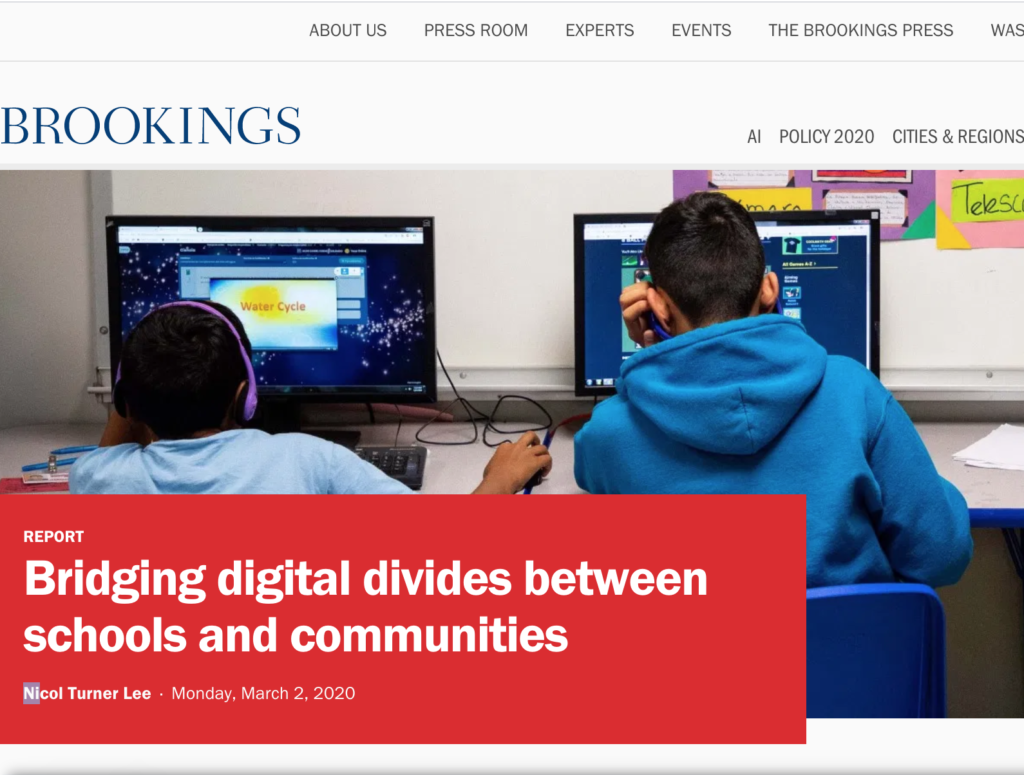
The paper looks at the gap between internet connectivity at schools and within under-resourced, low-income communities, which is often referred to as the homework divide. The author looks at data collected from schools in two different cities—Marion, Alabama, and Phoenix, Arizona, where access at school is high due to participation in the ConnectED initiative, a… Read More ›
Modernizing the Teaching Workforce for Learner-Centered, Competency-Based, Equity-Oriented Education: State Policy Recommendations
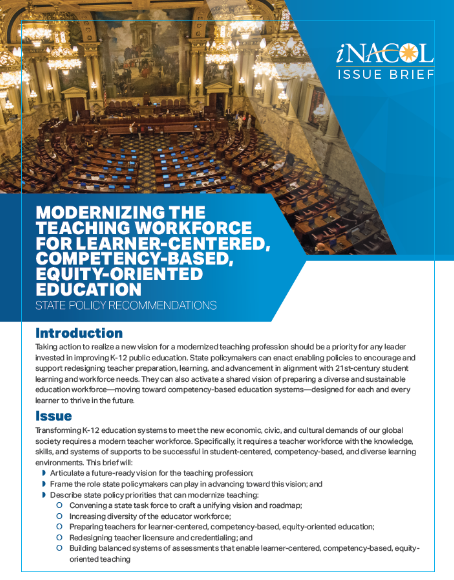
This issue brief discusses opportunities in state policy to modernize educators’ professional learning to support a mastery-based k-12 education system. In particular, it challenges state leaders to: Convene state task forces to craft a unifying vision and roadmap Increase the diversity of the educator workforce Prepare teachers for learner-centered, competency-based equity-oriented education Redesign teacher licensure… Read More ›
Transforming Teaching: What University Presidents and Deans of Colleges of Education Need to Know about Modernizing the K-12 Educator Workforce
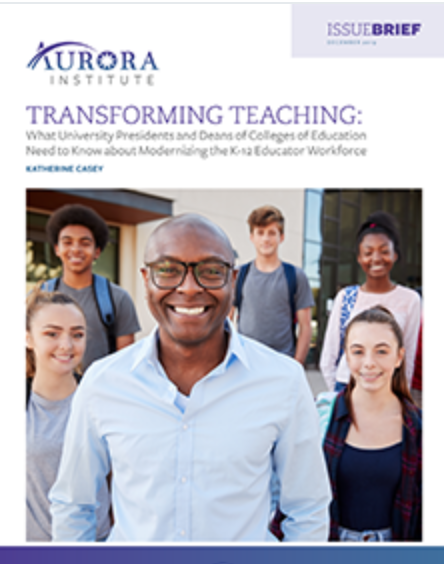
This issue brief outlines how university presidents and deans of colleges of education can use their influence to advance changes in the teaching profession to support more student-centered learning. In particular, it challenges institutions of higher learning to: Diversify the educator workforce Modernize teacher preparation Promote continuous professional learning and development This brief builds on… Read More ›
Developing a Modern Teacher Workforce
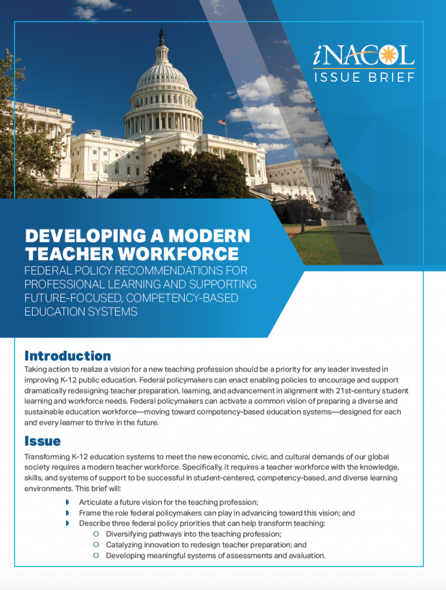
This report, Developing a Modern Teacher Workforce: Federal Policy Recommendations for Professional Learning and Supporting Future-Focused, Competency-Based Education Systems, addresses how policymakers can support the development of a teacher workforce with the skills and support systems needed to embrace the student-centered, competency-based, and diverse learning environments of the future. Specifically, this brief describes a vision for… Read More ›
The Digital Point of Divergence
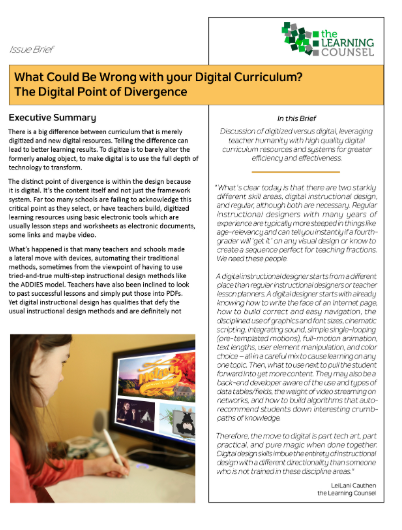
This brief explores the differences between digitized and digital curriculum. Digitized content is barely altered from its original analog form, whereas digital curriculum uses technology to transform the content. This brief looks at how to leverage teacher humanity with high quality digital curriculum resources and systems for greater efficiency and effectiveness. This issue brief is… Read More ›
Perkins V: Five Strategies for Integrating Personalized Learning with Career and Technical Education
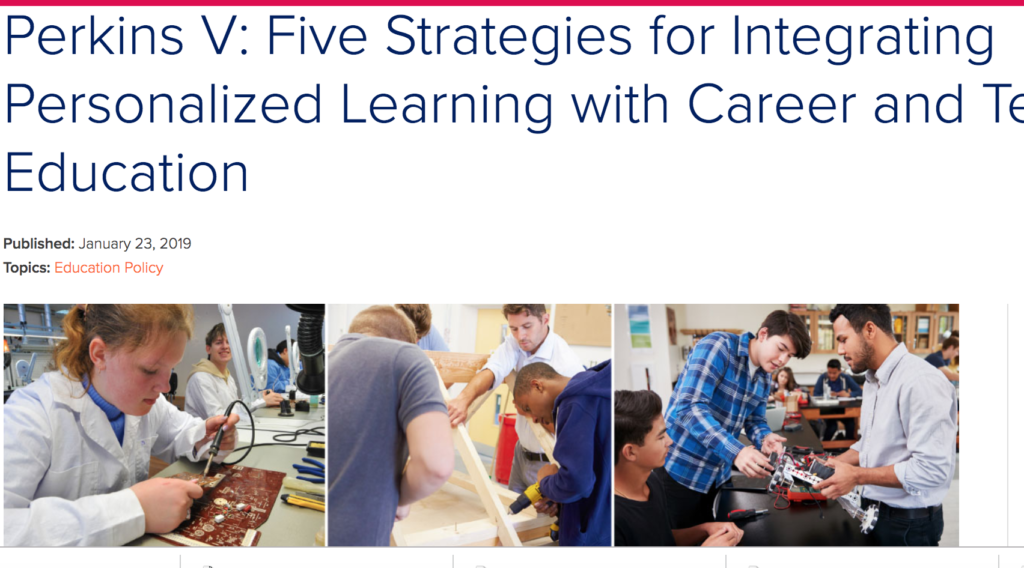
This resource looks at the implications of the the Strengthening Career and Technical Education for the 21st Century Act (commonly referred to as Perkins V) enacted by congress in the fall of 2018. One of the most important features of the new law is a greater emphasis on personalized learning strategies. This resource will help key… Read More ›
Frequently Asked Questions about Social-Emotional Learning
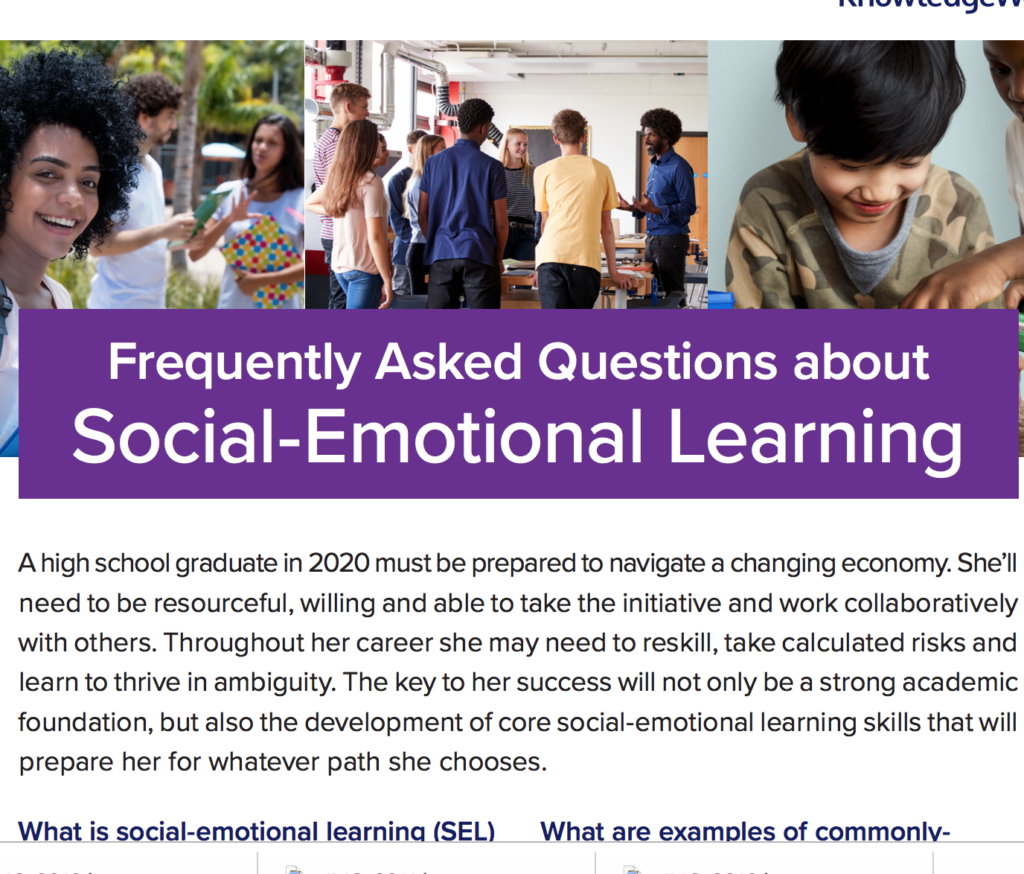
This FAQ provides a quick overview of SEL. It examines the definition of SEL and answers some basic questions about how it may be implemented and assessed in schools. This would be a great resource to share with parents at a school beginning an SEL program or to share with new parents at a school… Read More ›
Student-Led Conferences
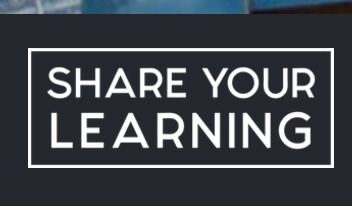
This two-page overview of student-led conferences was created by Share Your Learning, an organization dedicated to helping teachers create opportunities for students to present their learning to the public. One such opportunity, student-led conferences, encourage student ownership and engagement, increase family involvement and promote equity. The overview includes detailed steps on how to prepare students,… Read More ›
State Strategies to Develop Teacher Capacity for Personalized, Competency-Based Learning
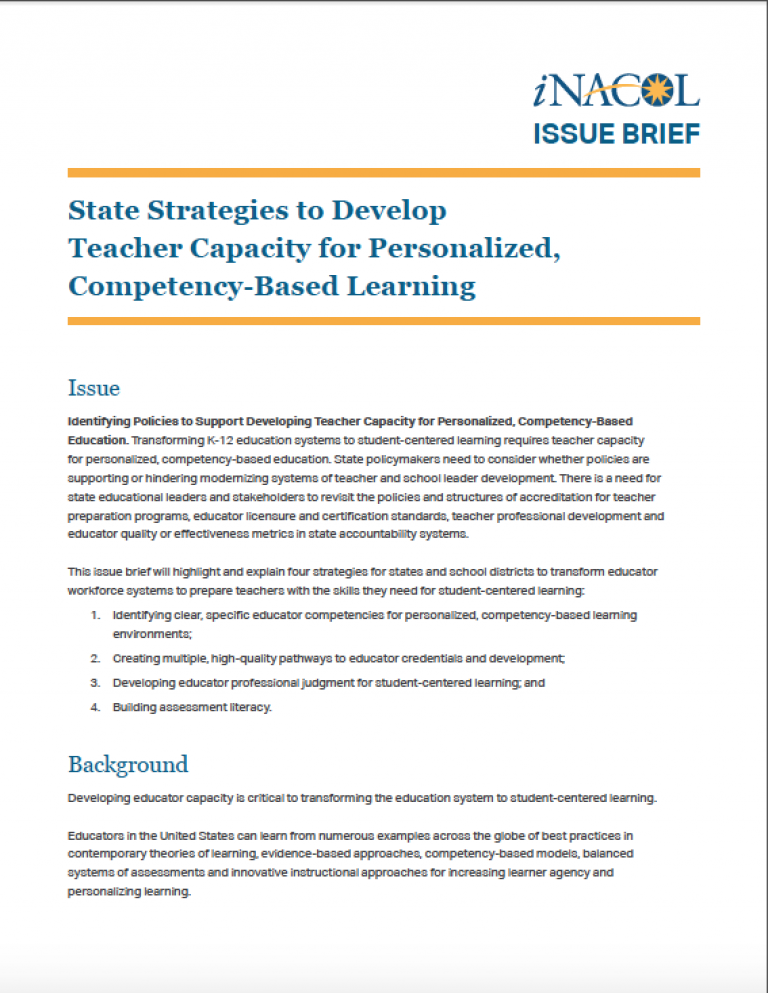
This issue brief outlines state policy recommendations and action steps to modernize educator preparation and development systems to bring student-centered learning environments to scale. To transform the K-12 education system, states must build teacher capacity for personalized, competency-based education. This brief highlights four strategies for states and school districts to prepare teachers with the skills… Read More ›
Rethinking State Accountability to Support Personalized, Competency-Based Learning in K-12 Education
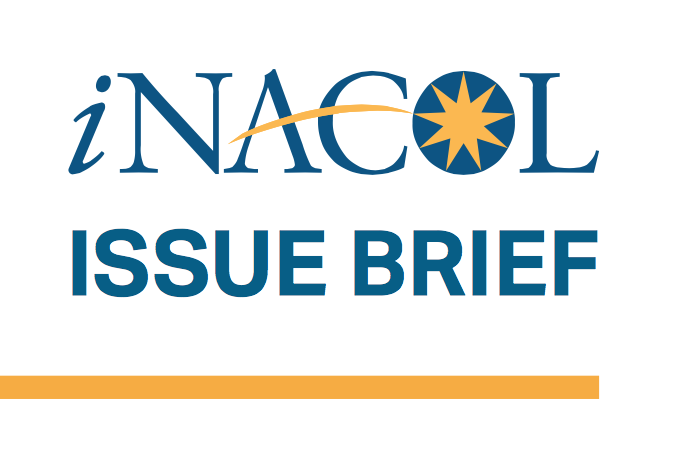
This issue brief from Aurora Institute shares state policy recommendations and resources for policymakers who are ready to rethink state accountability systems to support student-centered learning. With the passage of the federal Every Student Succeeds Act (ESSA), states gain considerably more authority and autonomy over the design of school accountability systems. This shift in responsibility… Read More ›
CoSN Empowered Superintendents Resources
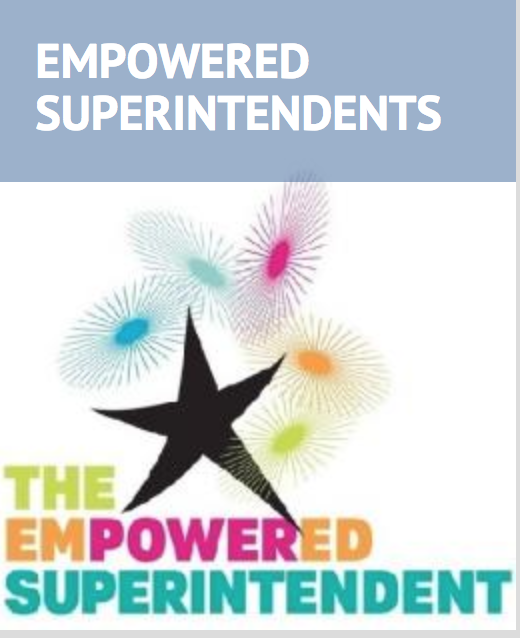
Through the Empowered Superintendents initiative, The Consortium for School Networking (CoSN) collaborates with superintendents to assess their challenges and increase their capacities to lead technology efforts to support student learning. The Superintendents Toolkit is a guide to support leadership in the digital age. It includes two modules, one which examines 5 key roles superintendents must address to… Read More ›
The State Innovator’s Toolkit: A Guide to Successfully Managing Innovation under ESSA
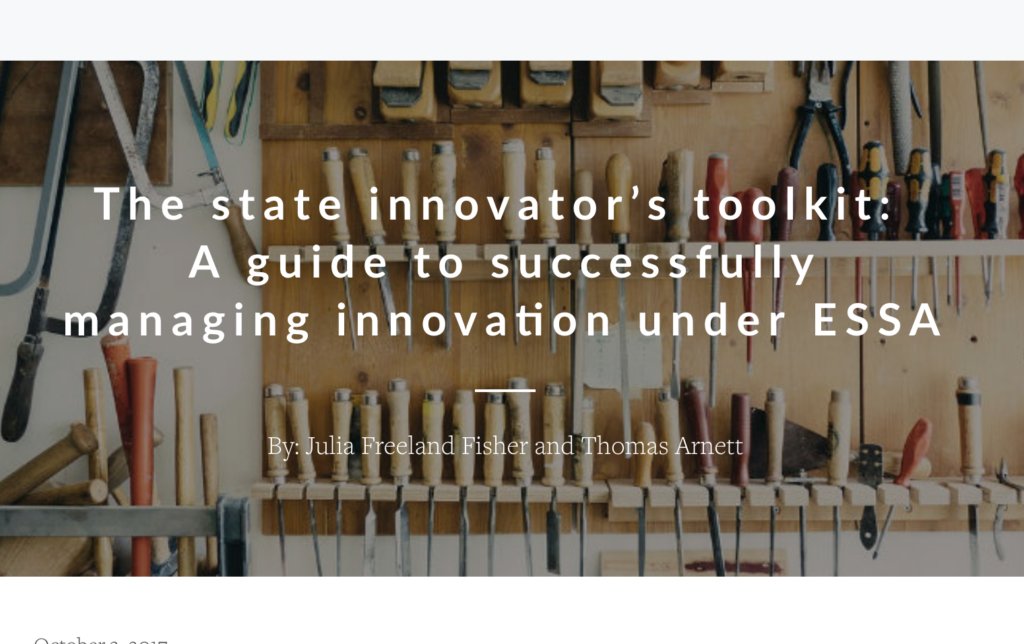
This guide addresses opportunities under the Every Student Succeeds Act (ESSA) to drive school improvement, challenging states to rethink older, more traditional approaches and support real innovation. It reviews several principals that can help state leaders support districts’ and schools’ change efforts. It also outlines in detail 6 approaches to spark innovation which states might consider. This… Read More ›